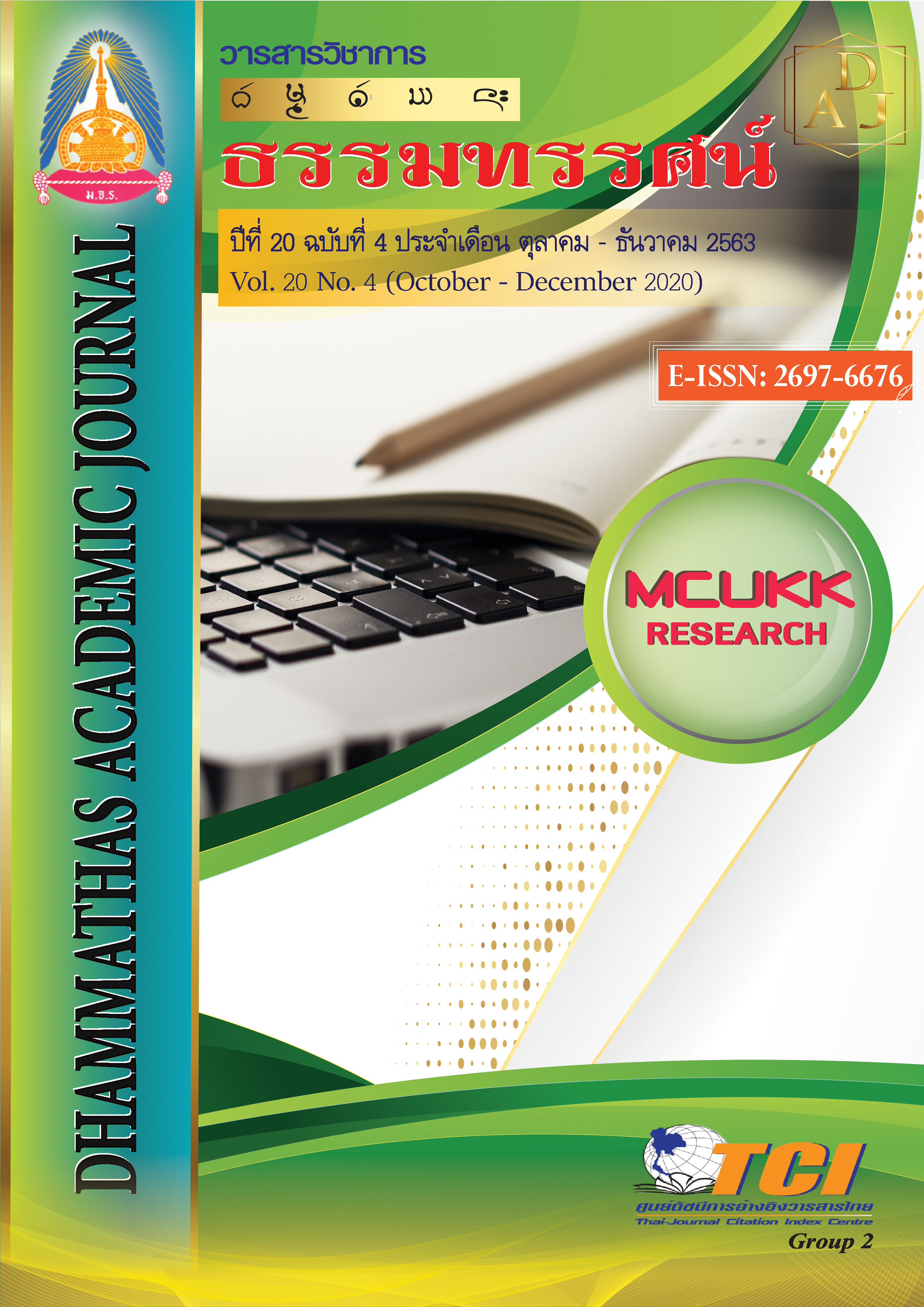State of Learning Management in the Social Studies Civics, Culture and Living in Society based on Four Sublime States of Mind of Teachers under the Secondary Education Service Area Office 24, Kalasin Province
Main Article Content
Abstract
The aims of this research were: 1) to study the state of learning management in the social studies, civics, culture and living in society; 2) to compare the levels of operation and 3) study the ways in relations to the learning management in the social studies, civics, culture and living in society based on the principles of Four Sublime States of Mind (Pāli: brahmavihāra) of teachers. This study was a survey research with its 165 samples as social studies teachers under the office of Kalasin secondary education service area 24. The tool used in this study was the questionnaire and the obtained data were analyzed by the following statistics: Frequency, Percentage, Mean, Standard Deviation, t-test (independent samples) and One Way Analysis of Variance: f-test.
The research results were as follows:
1. The mean score of the state of learning management in the social studies, civics, culture and living in society based on the principles of four sublime states of mind of teachers under the office of Kalasin secondary education service area 24 in overall was at a high level.
2. The overall statistic scores from the comparison of the operations of learning management in the social studies, civics, culture and living in society of the teachers, classified by their personal factors: genders, ages, education and teaching experiences were indifferent with the statistical significance level of 0.05.
3. The guidelines for learning management of social studies are that teachers should improve and develop learning management by creating a learning atmosphere in the classroom for students to have more fun in learning; they should adopt modern technology related to learning contents in teaching and learning more; there should be an evaluation and development in the subject of civics, culture and living in society with the principles of four sublime states of mind; and the Dharma camp activities, Thai manners contest or volunteer activities should be organized in order to instill students with civics, cultures and living in society with the principles of four sublime states of mind and to make them as the good people of the society.
Article Details
References
Ministry of Education (2012). Learning Management Approach to ASEAN Secondary Schools. Bangkok : Printing Agriculture Cooperatives of Thailand.
Nirunthavee, S. (2006). Learning management documents to develop learners to be good citizens. Research report. Bangkok : pimdee printing.
Office of the National Economic and Social Development Board. (2019). National Economic and Social Development Plan No. 12. http://www.nesdb.go.th/ewt_dl_link.php?nid=6422 (Accessed 10 January 2019).
Phattiyathani, S. (2006). Educational measurement. Kalasin : Coordination of printing.
Phra Dhamma Pitaka (P.A. Payutto). (2006). Dhamma Dharma revised and Expanded. Bangkok : Mahachulalongkornrajavidyalaya Printing.
Phra Krishna Wachiraya Mano (WaphakPetch). (2017). Teaching and Learning of Social Studies, Religion and Culture in Promoting Moral Ethics for High School Students in Udon Thani Municipality. Master of Buddhist Thesis. Graduate School : Mahachula longkornrajavidyalaya University.
Sisa-at ard, B. (2002). Preliminary research. Bangkok : Suwiriyasan.
Thitakom, N. (2015). The application of the four Brahma in administration of school administrators Office of Secondary Education, Area 42. Master of Science Thesis. Graduate School : Mahachulalongkornrajavidyalaya University.

